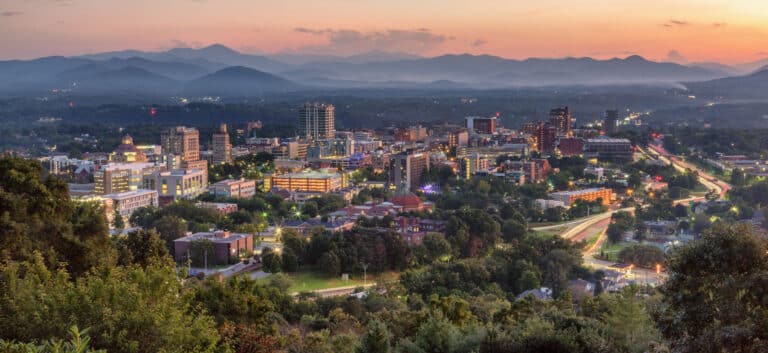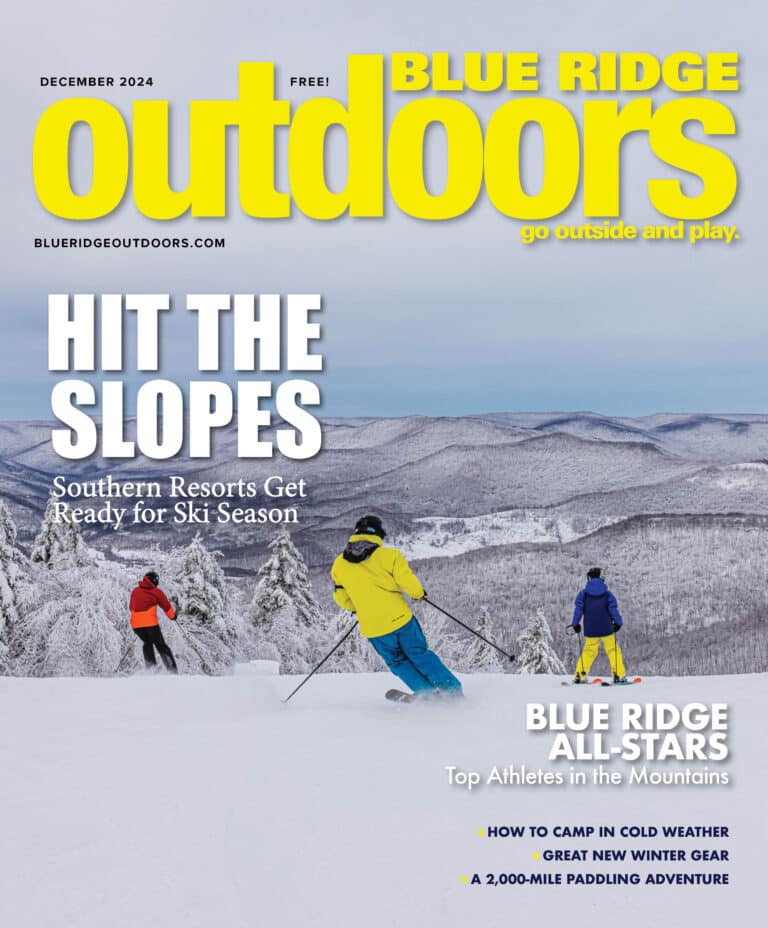It should have been a beautiful morning hike. We followed a footpath along a mountain stream to a plateau shaded by towering beeches and maples. It was an idyllic spot in Pisgah National Forest—a scenic shelf nestled high in the forest with panoramic vistas of rolling mountains.
But it was completely trashed. This encampment had been used for months before being abandoned, and garbage was littered everywhere: broken bottles, dirty diapers, drug needles, soiled clothes, broken tents, piles of shit-covered toilet paper.
I was part of the cleanup crew. I would be helping two national forest staff, Sara and Lyle, haul off the abandoned encampment.
We stood silently for several minutes surveying the scene. I was seething inside. This pristine spot in Pisgah had been utterly ruined. Who could be so fucking selfish?
Sara took a deep breath and then said quietly, “Let’s get to work.”
This wasn’t my first time cleaning up campsites in the forest. For several years, I had been on a volunteer crew maintaining trails and campsites in this part of Pisgah National Forest. I had filled my share of trash bags with beer cans and food wrappers left behind by careless campers. But this encampment was on a completely different scale. It was a concealed and illegal spot tucked away in the woods, and people had been full-on living here. The trash left behind was staggering.
We gloved up and plunged in. We gathered armfuls of garbage and stuffed them into giant black trash bags. We spent hours collecting and hauling the trash a quarter mile through the forest to the nearest road. A pickup truck would haul the trash to a dumpster.
Some items—like a soaked mattress—had to be dragged separately, and it repeatedly snagged on brambles and bushes. Often, plastic trash bags ripped open from waterlogged weight and had to be reinforced and refilled. With each trek from the encampment to the road, I grew more furious. I could have been out running or biking in this forest. Instead, I was cleaning up someone else’s mess.
It was hard work, too. I was dripping sweat, and my arms quivered after the fourth or fifth trip hauling heavy trash bags up and down a steep slope.
Sara loaded trash bags into the back of the truck. Lyle used an ax to break apart larger pieces of trash so that they could fit in the pickup bed. Neither seemed as angry as I was. They were talking and even laughing as they piled mountains of trash into the pickup.
“How many of these encampments have you had to clean up?” I asked Lyle.
“In the past year, I think this is my 26th,” he replied.
“26! Holy hell!” I shouted. “Doesn’t it make your blood boil?”
Lyle paused for a moment. “I try to extend compassion as far as possible to the folks who’ve had to live out here like this.”
Illegal encampments in national forests skyrocketed during the pandemic, and they have continued to spread and increase afterwards. Trashed encampments had become so widespread at Max Patch Mountain—a beloved bald along the Appalachian Trail—that the Forest Service had to close the site to camping completely. Frat boys and tailgaters with plenty of money had been mostly responsible for the mess. For months, the Forest Service and volunteer trail crews hauled dumpsters full of garbage off the mountain, and today they continue protecting the area with regular patrols.
However, another group of people living in national forest encampments are unhoused and unemployed. Some have drug or mental health issues. Others are everyday folks facing tough times.
As I walked back up the hill for another round of hauling trash, I felt my fury dissipating. I looked around again at the strewn debris: a doll, a notebook with sketches and scribbled poems, Crayola markers. The people who lived here had kids, dreams, and broken hearts.
The trash bags felt lighter on my next few trips to the pickup. After a few hours, we had hauled everything out of the encampment. I took one last look around.
I was still pissed that people would leave their shit behind for someone else to deal with.
There are limits to compassion. Some encampments are left behind by assholes. Other encampments are used by dangerous and desperate people addicted to drugs who are increasingly burglarizing local communities. One neighbor told me later that he knew some of the people living in forest encampments. “Some of ‘em are even kin. But when they dump their problems onto our lands and lives, they are crossing a line.”
I also thought about the long, cold nights that some of these families endured out here all winter, with nowhere else to go.
I lost track of how many times I dragged garbage from the encampment to the pickup that day. But I realized on my final trip that this was the best workout I had in a while. Garbage hauling was great exercise. It was cardio and weights combined, and it required me to use different muscles, including the cardiac one that had perhaps become a bit hardened in recent years.
And unlike my regular running and biking circuits, these trash-hauling loops in the forest actually felt useful. I wasn’t counting laps or checking my watch. I was doing real work. And I was giving something back to the forest that had sustained me for so long.
I don’t know what to do about the increasing number of encampments. They require solutions far beyond the national forests. But I am awestruck by Forest Service staff like Lyle and Sara who clean up these sites week after week without much recognition or appreciation. They have stepped up to do what few others will. They do the dirty work to clean and protect our public lands, and somehow, they hold space in their hearts to smile through the stench.
Photo by Mike Wurman








